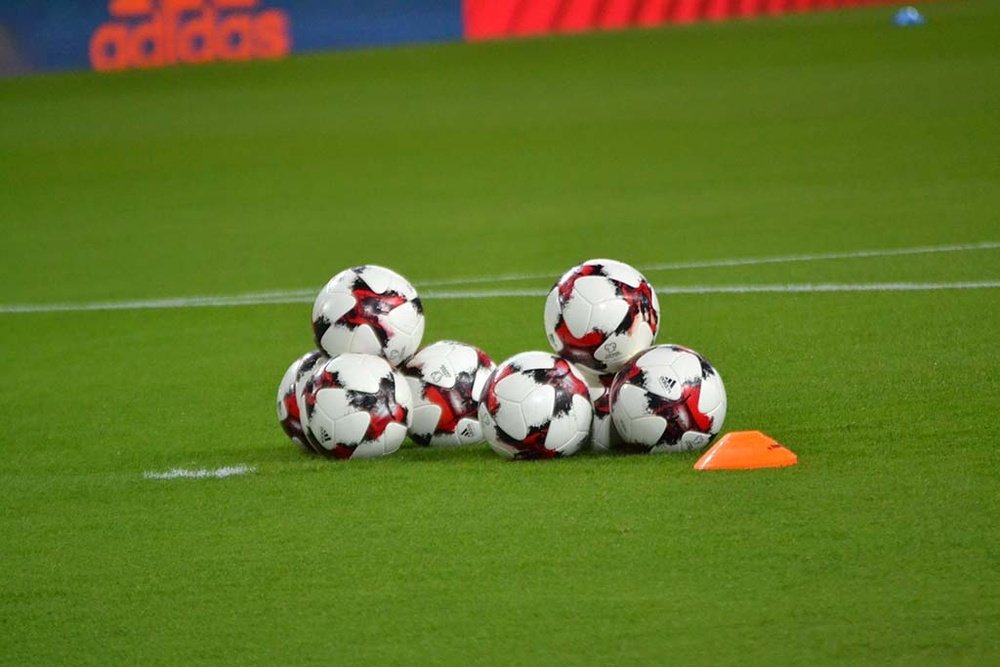Between UEFA Cup and Olympic Games, this summer is for the fans


As fans will recall, the French won the World Cup in Russia back in 2018 and the 52-year-old Deschamps himself piloted his national team to victory as captain in his day. But repeating this trick will not be simple, not least because France’s opening match is against the formidable Germany.
With a springtime of lockdowns and cancelled sport events across Europe, the European sporting world is looking towards the Summer which is shaping up to be a real spanker. After last year's disheartening swathe of cancelled sporting events, the UEFA Cup is not the only international competition that is back in play following the rollout of Covid-19 vaccines: the XXXII Tokyo Olympiad is now just three months away. These two postponed quadrennial events, slated to go ahead in the face of adversity, promise to make this a summer one to remember.
Even without Deschamps exhortations, the pressure is on for Europe’s footballers who have one month to prepare before the hotly anticipated UEFA Euro Championship—the event which see European nations face-off in in an attempt to carry home the coveted silver trophy. Ever since the 2020 tournament was postponed due to coronavirus concerns, Europeans have carefully followed developments regarding the UEFA Cup. The event will take place just before the Olympic Games, with official kick-off on 11th June 2021.
The rejigged tournament is now slated to take place with important changes: first and foremost the fact that the event is hosted across eleven different cities from Baku to Bucharest – for the first time in its 60-year history. The host cities will no longer include Ireland’s Dublin or Spain’s Bilbao after they were deemed risky venues—local restrictions would make it difficult for fans to attend the games. But while matches will be spread across countries and have reduced attendance, the lack of screaming crowds is unlikely to adversely affect players who have grown accustomed to empty stands and recorded cheers.
At a time when Europe is deeply divided over vaccine distribution, entry requirements and post-Brexit fallout, the UEFA Cup will bring a dose of much needed positivity to the continent and might just help to squarely refocus attention on the quality of the sport and the players. This is especially needed in the wake of the Super League controversy that caused outrage among millions of football fans who decried the move to create an über-league as the “ultimate betrayal” of football’s roots and universal spirit.
Indeed, the “back to the roots” spirit of the Euro Cup is reflected by its mascot, Skillzy, who is inspired by the culture of panna – or street football – which has been a reality for so many Europeans this year, given that pitches have been kept under lock and key in order to reduce viral transmission. And so, the four-week long round of matches will be another important step towards normality, reviving the crushed hopes of fans after last year’s postponement.
Alongside the UEFA Cup, the Olympics has hogged the sporting headlines in recent months for its global appeal. But just like the football tournament, the Olympics has faced its own fair share of organisational hurdles induced by the coronavirus pandemic. But following a recent visit to a half marathon in Japan’s Northern city of Sapporo, doubling as a test of the plans laid out for the Tokyo 2020 Olympics, the World Athletics President, former Olympic runner and Chair of the London 2012 Olympics Sebastian Coe, expressed his confidence that the event will indeed take place this summer. This crucial pre-Games test went off without a hitch on the new Olympic running track, showing that it is possible to ensure safe sporting events with the correct coronavirus countermeasures.
The race was a deciding moment for Japan whose confidence in the upcoming Games has been knocked by the statements of two Japanese government officials who have cast aspersions on proceedings out of the blue, despite the government’s insistence that the Opening Ceremony will take place in less than three months. Indeed, although the Japanese Olympic Committee (JOC), has had an extra year to get the show on the road, the organisation of this major sporting event involving almost 200 countries, in the middle of a global pandemic has been no mean feat.
While international spectators are not permitted and Japan has yet to confirm if local spectators will be in attendance, the organisers are hoping to make up for it through an extensive digital offer. Historic Japanese public relations company Dentsu was behind the sponsorship of this event, garnering a record €3 billion from local partners in the lead up to the Games. This has allowed the setting up of state-of-the-art technology in the form of 8K broadcasting, meteor showers, instantaneous translations and robot assistance. The recently released update of the “playbook” also helps provide clarity on how Toyko intends to protect locals, athletes and partners, predominantly through testing, tracing and isolating.
The upcoming high-level tournaments represent a sliver of normality and hope for sports fans everywhere after a very long year, regardless of the increased safety regulations and reduced spectators. Perhaps this summer, with its “back to the basics” UEFA Championships and Tokyo Olympics, will help to remind the world of the true spirit of the sports loved by millions across the globe.

